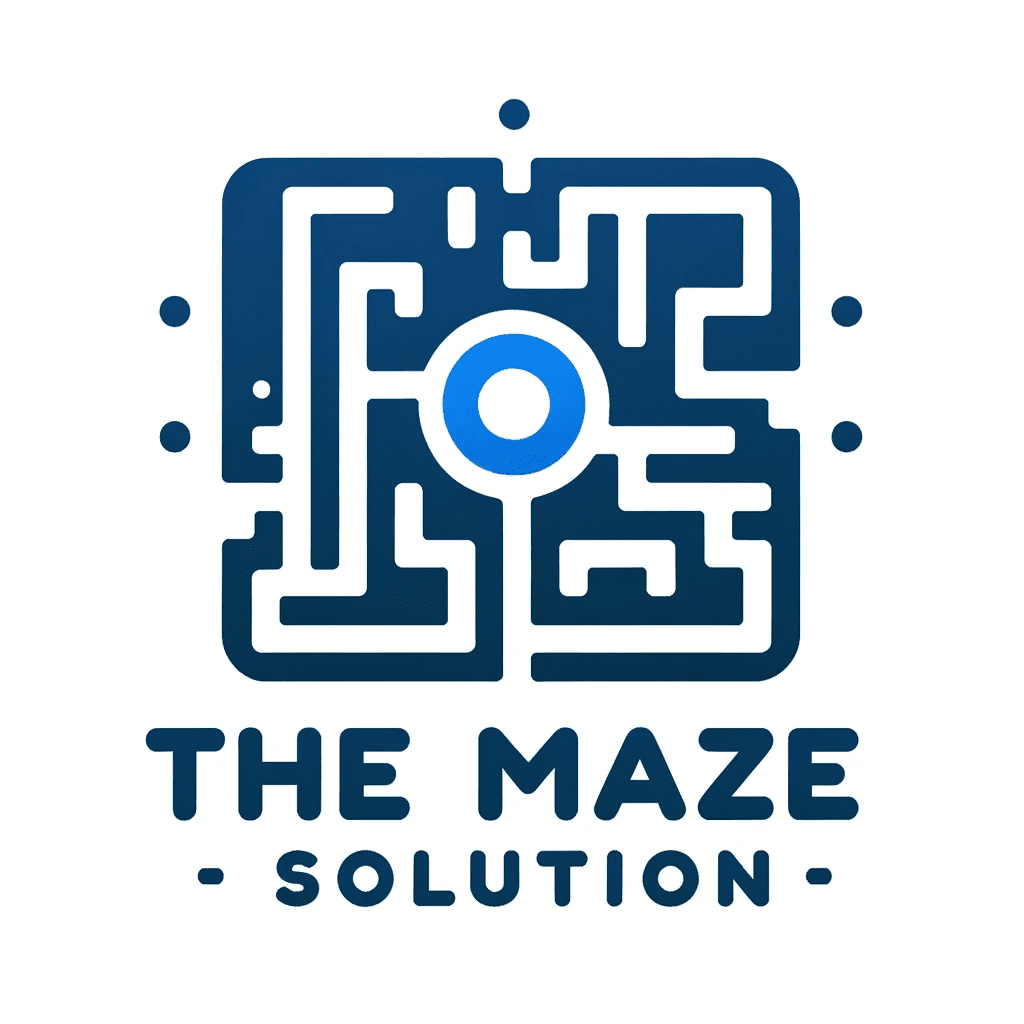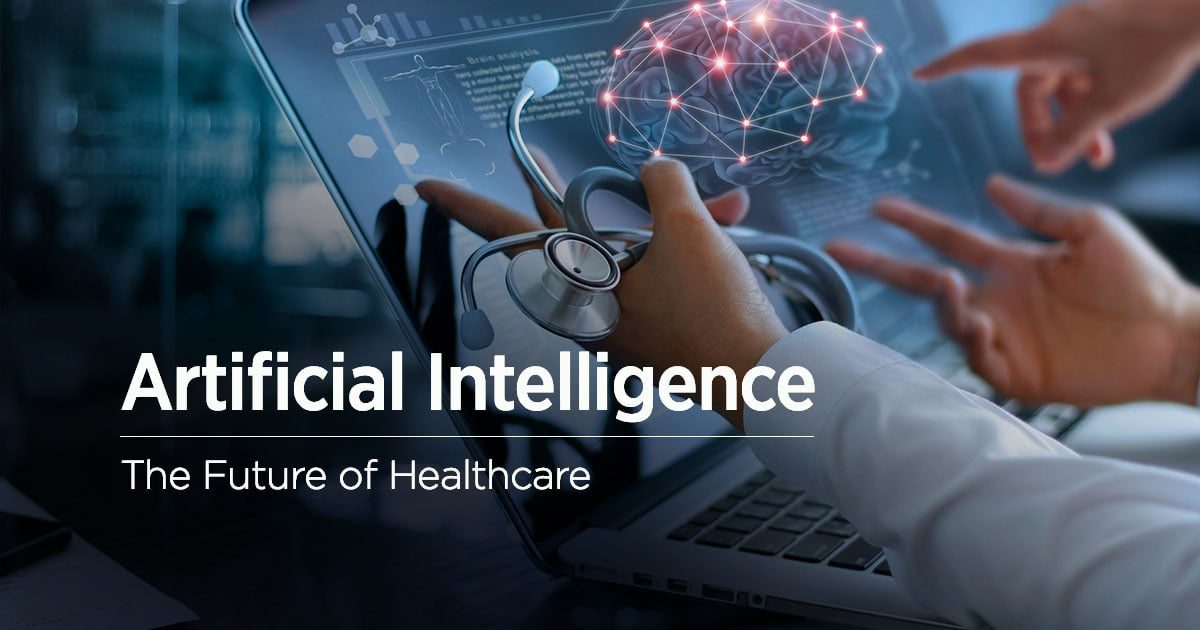Artificial Intelligence in Market Research: Tools, Techniques, and Trends
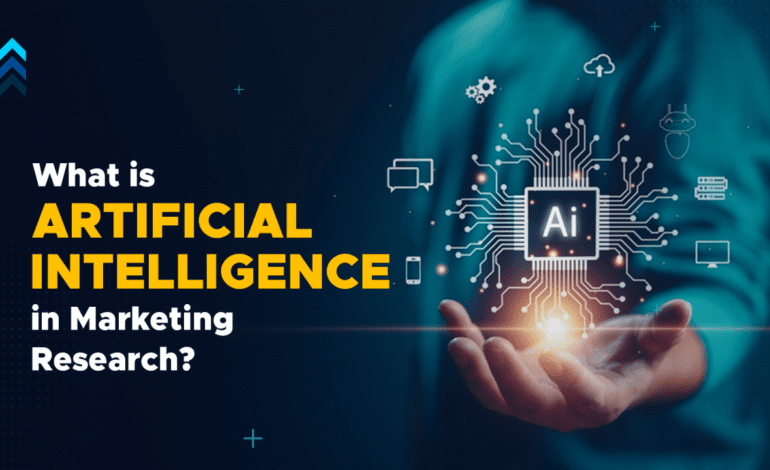
Market research is the backbone of informed business decision-making. As technology advances, artificial intelligence (AI) has become a game-changer in this field. The integration of AI in market research offers a new horizon of opportunities, enabling companies to gain deeper insights, make more accurate predictions, and respond more swiftly to market changes. This blog will delve into the tools, techniques, and trends of Artificial Intelligence in Market Research, highlighting how AI is transforming this critical business function.
The Evolution of Market Research
Traditionally, market research involved manual data collection methods such as surveys, focus groups, and interviews. While these methods are still valuable, they are time-consuming and often limited in scope. The advent of big data and AI has revolutionized how market research is conducted, providing more efficient and comprehensive solutions.
Why Traditional Methods Fall Short
Traditional market research methods often face limitations in terms of data volume, accuracy, and speed. Surveys and focus groups can be biased and may not always capture the full spectrum of consumer behavior. Moreover, the manual analysis of large datasets is prone to human error and can be very time-consuming.
The Role of AI in Market Research
Artificial intelligence has introduced numerous advancements in market research, making the process more streamlined, accurate, and insightful. By leveraging machine learning, natural language processing, and predictive analytics, AI can analyze vast amounts of data swiftly and accurately.
Key Benefits of AI in Market Research
- Enhanced Data Analysis: AI algorithms can process and analyze large datasets quickly, uncovering patterns and trends that might be missed by human analysts.
- Real-time Insights: AI provides real-time data analysis, allowing businesses to make informed decisions faster.
- Predictive Analytics: AI can predict future market trends based on historical data, helping companies stay ahead of the curve.
- Personalization: AI enables more personalized consumer insights, tailoring marketing strategies to individual customer preferences.
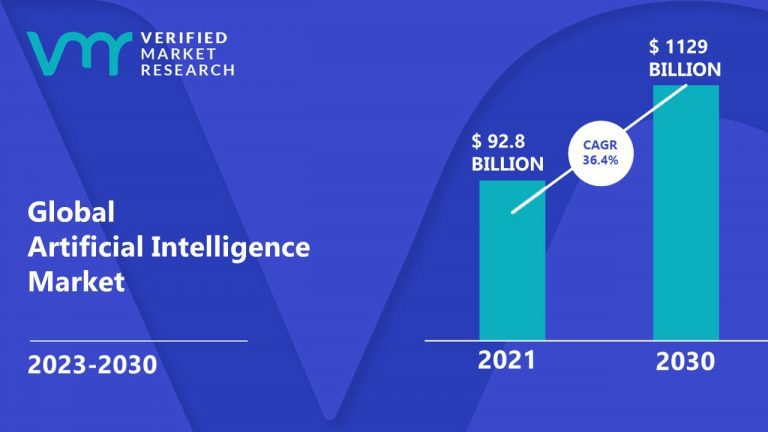
Tools and Techniques for Artificial Intelligence in Market Research
The integration of Artificial Intelligence (AI) in market research has revolutionized the way businesses gather, analyze, and interpret data. Leveraging AI technologies such as machine learning, natural language processing, and computer vision, AI-powered tools provide deeper insights and more accurate predictions. Here’s a detailed exploration of various AI tools and techniques enhancing market research.
AI-Powered Survey Tools
Overview: AI-powered survey tools, such as SurveyMonkey and Qualtrics, employ machine learning algorithms to improve survey design, streamline data analysis, and derive actionable insights.
Capabilities:
- Intelligent Survey Design: These tools can suggest question formats and sequences based on previous survey data, ensuring higher response rates and better quality data.
- Real-Time Analysis: Responses are analyzed as they come in, providing immediate insights and allowing for quick adjustments to survey strategies.
- Pattern and Trend Identification: AI can uncover patterns and trends within responses that traditional methods might overlook, offering a deeper understanding of consumer opinions and behaviors.
Benefits:
- Enhanced data accuracy and quality.
- Faster turnaround time for insights.
- Ability to handle large volumes of data efficiently.
Social Media Analytics
Overview: Social media platforms are rich with consumer interactions and feedback. Tools like Hootsuite and Brandwatch use AI to analyze these interactions, providing valuable insights into consumer sentiment, trends, and brand perception.
Capabilities:
- Sentiment Analysis: AI algorithms assess the tone of social media posts to gauge public sentiment towards brands, products, or services.
- Trend Detection: By monitoring social media chatter, these tools can identify emerging trends, helping businesses stay ahead of the curve.
- Audience Segmentation: AI can segment audiences based on their behavior, interests, and interactions, enabling more targeted marketing efforts.
Benefits:
- Real-time insights into consumer opinions.
- Ability to track brand reputation and identify potential PR crises early.
- Data-driven understanding of audience preferences.
Chatbots and Virtual Assistants
Overview: AI-driven chatbots and virtual assistants can engage directly with customers, collecting feedback, answering questions, and providing personalized recommendations.
Capabilities:
- Real-Time Interaction: These tools interact with customers in real-time, ensuring immediate feedback and engagement.
- Data Collection: Chatbots can gather qualitative data through conversations, which can be analyzed to understand consumer needs and preferences.
- Personalization: By tailoring responses and recommendations, chatbots enhance customer experience and gather more relevant data.
Benefits:
- Continuous data collection without the need for human intervention.
- Improved customer satisfaction through personalized interactions.
- Enhanced accuracy of collected data due to real-time engagement.
Predictive Analytics Tools
Overview: Predictive analytics tools, such as IBM Watson and SAS Analytics, leverage historical data to forecast future trends and consumer behavior.
Capabilities:
- Trend Prediction: These Artificial Intelligence tools analyze past data to identify potential future trends, helping businesses prepare and adapt.
- Risk Mitigation: Predictive analytics can highlight potential risks, enabling businesses to take proactive measures.
- Opportunity Identification: By predicting changes in consumer behavior, businesses can identify new opportunities for growth and innovation.
Benefits:
- Artificial Intelligence tools are Data-driven decision making.
- Artificial Intelligence tools Enhanced ability to anticipate market changes.
- Artificial Intelligence tools Reduced uncertainty and better strategic planning.
Image and Voice Recognition
Overview: Artificial Intelligence tools equipped with image and voice recognition capabilities can analyze visual and auditory data, providing a deeper understanding of consumer behavior and preferences.
Capabilities:
- Visual Data Analysis: Tools can analyze images and videos to gather insights on consumer behavior, product usage, and brand engagement.
- Voice Data Analysis: Voice recognition tools can interpret spoken feedback, capturing nuances and emotions that text-based methods might miss.
- Non-Verbal Cues: These tools can detect non-verbal cues such as facial expressions and tone of voice, providing a richer dataset.
Benefits:
- Comprehensive understanding of consumer behavior.
- Ability to capture and analyze data from various media sources.
- Improved accuracy in sentiment and preference analysis.
The integration of AI in Market Research is constantly evolving, with new trends emerging regularly. Staying abreast of these trends is crucial for businesses aiming to leverage AI effectively.
Automated Data Collection
Automation is a significant trend in AI in Market Research. Automated data collection tools can gather data from multiple sources, including social media, websites, and online reviews, with minimal human intervention. This not only saves time but also ensures the data is up-to-date and comprehensive.
Sentiment Analysis
Sentiment analysis is becoming increasingly sophisticated, thanks to AI. It involves analyzing text data to determine the sentiment behind it—whether positive, negative, or neutral. This helps businesses gauge public opinion about their products, services, or brand as a whole.
Hyper-Personalization
AI enables hyper-personalization in market research, allowing businesses to create highly tailored marketing campaigns. By analyzing individual customer data, AI can provide insights into specific preferences and behaviors, leading to more effective marketing strategies.
Ethical AI and Data Privacy
As AI becomes more prevalent in market research, ethical considerations and data privacy are gaining importance. Businesses must ensure they use AI responsibly, respecting consumer privacy and adhering to regulations like GDPR.
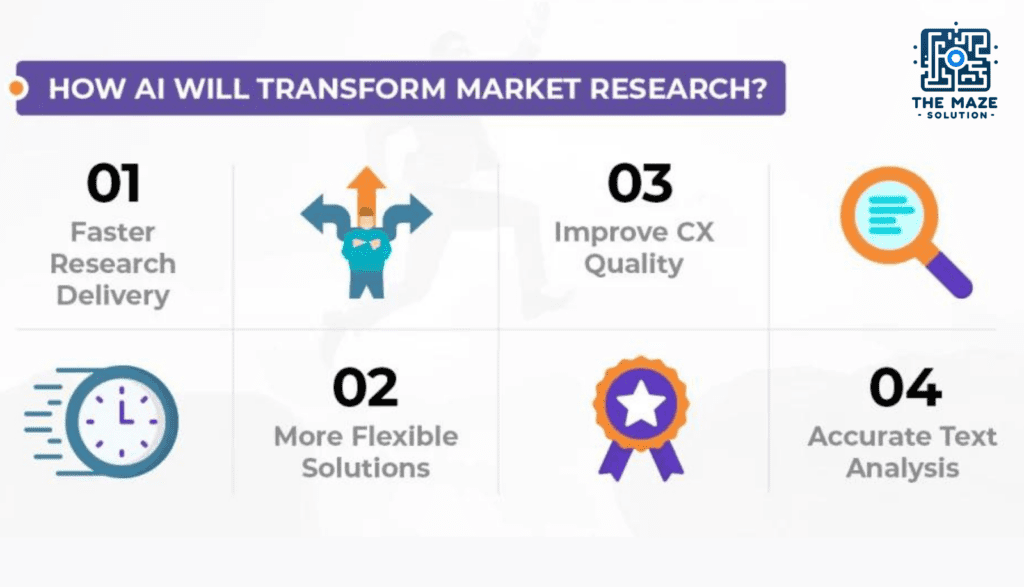
Case Studies: Successful Use of AI in Market Research
To illustrate the impact of AI in market research, let’s look at a few case studies of companies that have successfully integrated AI into their research processes.
Coca-Cola: Enhancing Customer Engagement
Coca-Cola uses AI-powered social media analytics to monitor consumer sentiment and engagement. By analyzing data from various social media platforms, Coca-Cola can identify emerging trends and adjust its marketing strategies accordingly. This real-time insight helps the company stay relevant and responsive to consumer needs.
Unilever: Predictive Analytics for Product Development
Unilever employs predictive analytics to forecast market trends and consumer preferences. By analyzing historical data, Unilever can predict which products will be successful and tailor its product development strategies accordingly. This has helped the company launch successful new products and stay ahead of competitors.
Netflix: Personalizing Content Recommendations
Netflix uses AI algorithms to analyze viewer data and provide personalized content recommendations. By understanding individual viewer preferences, Netflix can suggest shows and movies that are more likely to be watched, enhancing user satisfaction and retention.
Future Outlook: AI and the Evolution of Market Research
The future of market research lies in the continued integration of AI. As AI technologies advance, they will offer even more sophisticated tools and techniques for data collection, analysis, and prediction. Businesses that embrace these advancements will be better positioned to understand their markets, anticipate changes, and make informed decisions.
Integration with Other Technologies
The integration of AI with other emerging technologies, such as blockchain and the Internet of Things (IoT), will further enhance market research capabilities. For example, blockchain can provide secure and transparent data collection, while IoT devices can offer real-time insights into consumer behavior.
Increased Adoption of AI by Small Businesses
As AI tools become more accessible and affordable, small businesses will increasingly adopt AI for market research. This democratization of AI will level the playing field, allowing smaller companies to compete with larger corporations in understanding and responding to market trends.
Conclusion
Artificial intelligence is transforming market research, offering powerful tools and techniques to gather, analyze, and interpret data. By leveraging AI, businesses can gain deeper insights, make more accurate predictions, and stay ahead of market trends. As AI technology continues to evolve, its impact on market research will only grow, making it an indispensable tool for businesses of all sizes.
Incorporating AI in market research is not just a trend; it’s a strategic move towards more informed and effective decision-making. By embracing AI-driven market research, companies can unlock new opportunities, enhance customer engagement, and drive business growth.
Read our other Interesting Blogs:
“How to Turn Off Meta AI on Facebook?”This blog is really amazing if you want to get more knowledge about Artificial Intelligence: Click Here : How to Turn Off Meta AI on Facebook?
“10 Ways AI is Revolutionizing Daily Life” This blog is really amazing if you want to get more knowledge about Artificial Intelligence: Click Here : 10 Ways Artificial Intelligence is Revolutionizing Daily Life
“How AI Will Transform Everyday Tech? ” This blog gives you the knowledge that how Artificial Intelligence transforming us ,Click here to read : How Artificial Intelligence Will Transform Everyday Tech?
“The Future of Quantum Artificial Intelligence: Elon Musk’s Game-Changing Ideas ” This blog gives you the knowledge that how Artificial Intelligence transforming us ,Click here to read : The Future of Quantum Artificial Intelligence: Elon Musk’s Game-Changing Ideas
